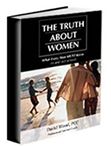Mentor Monthly #122: Why You Need a Product
Announcements/Offers
Are You a Relationship Coach?
| You’ll find some great tools and techniques, in fact an entire framework for relationship coaching in my relationship ebook. Great for the experienced coach, or for new coaches wanting to move into relationship coaching…
Cl’ick here for “The Truth About Women” |
 |
Slow Sex
For more than a decade, Nicole Daedone has been leading the “slow sex movement,” which is devoted to the art and craft of the female orgasm. OM is the act of slowing down, tuning in, and experiencing a deeper spiritual and physical connection during sex. SLOW SEX reveals the philosophy and techniques of OM and includes a step-by-step, ten-day OM starter program, as well as OM secrets for achieving ultimate satisfaction. It also includes exercises to help enhance readers’ “regular” sex lives, such as Slow Intercourse. I’ve taken a couple of courses and Nicole knows her topic.
FEATURE: Why you need a product
Taken from my book ‘Get Paid For Who You Are‘

Why you need a product
If you want to earn passive income, free up your time and serve more people, you absolutely must have a product to sell. I’ll focus on information products because the profit margins are so high, because they cost close to nothing to produce. But the principles apply to any product.
Let’s take a look at why product is so important to your online business:
1. Serve more people
Instead of serving, say, 20 people face to face, you can serve tens of thousands through your products.
For example, when I was group coaching or leading seminars, I found myself saying the same things over and over again. I started to lose interest. I decided to write everything down in a product called “CoachStart Manual,” which teaches everything a coach needs to know to launch their business.
The CoachStart Manual (www.CoachStart.com) has now sold more than 6,000 copies in 52 countries.
By creating an information product, I automated my service to the world.
2. Paid auditions
When people buy your product, they are paying you to audition for them. Suppose you have a consulting or other service you’d like to sell to your web visitors. For example, if you’re a dentist and a site visitor is thinking of switching to your practice, how will you help them make that decision? Many businesses rely on special offers and hope. But in our example, if the site visitor buys your CD explaining the Top Ten Tips for Oral Hygiene, it’s like they are paying you to audition for them.
3. Be the expert
Have you noticed how when you know someone has written a book you assume they are an expert on that topic? As we read the book, assuming it’s good, the perception strengthens. There’s a similar effect when we listen to an MP3, read an ebook, or watch a video of someone. So in a way, creating a product on a topic positions you as an expert.
4. Personal satisfaction
One of the most rewarding aspects of creating your own products is people telling you how much it means to them. Recently, when I was at Harbin Hot Springs in Middletown, California, a man approached me.
“Are you SolutionBox?” he asked.
“Well, that’s my company, yes,” I said.
The guy was really excited: “Man, I got the first speech that you ever did – “First 50 Clients” on CD – and it really inspired me. I’ve been using that to build my practice. It’s awesome. Thank you so much.”
I’ve also had people write and tell me my relationship ebooks (I know, versatile, huh? See www.TruthAboutWomen.net) changed their life. It feels so good to hear from people whose lives have shifted for the better because of your product.
5. Move customers through your product funnel
Finally, the big picture reason to have a product is to help move your customers through your Product Funnel. Remember “flowers before sex in the Bahamas”? You don’t try to sell someone your professional service, such as coaching or even dental work, up front. You cannot expect people visiting your website for the first time to make a significant purchase, because they don’t even know you. That first meeting, just as in a social setting, comes off best when it is a low-pressure opportunity to be introduced and bond.
In order for people to buy from you, they must first like and trust you. You achieve that by doing what’s called “relationship marketing” – building a relationship with your customer. You start by giving away a freebie such as a newsletter or a special report. In return, they give you their name and e-mail address; they are now in your marketing “funnel.” As people read your newsletters and get to know you, they may start buying small products, then bigger and bigger products.
***
Take Action
1) What types of products can you create for your business? Share at the blog.
2) How many elements can you add to your funnel? Share at the blog.
Love and gratitude,

P.S. If you have any comments on this newsletter, we’d love you to share them here.
* * *


